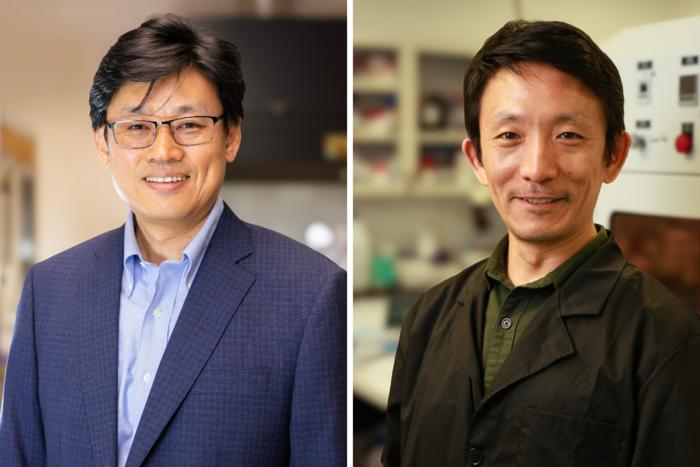Writer: Marisa Ramiccio ’11

Credit: University of Central Florida
Writer: Marisa Ramiccio ’11
ORLANDO, April 18, 2024 – Gold may be a coveted precious metal, but it could also be the key to cleaner drinking water.
A team of UCF researchers is exploring the use of the metal to develop a novel method to rid drinking water of harmful algal blooms, or HABs, which occur when colonies of algae grow out of control and produce toxic or harmful effects on people, fish, birds and other living creatures.
Their project is supported through the U.S. Environmental Protection Agency’s People, Prosperity and the Planet (P3) program, which recently awarded $1.2 million to 16 collegiate teams across the United States.
UCF received $75,000 for their two-year project that aims to develop a gold-decorated nickel metal-organic framework (MOF) that removes microcystins — toxins produced by harmful algae blooms — from the water. MOFs are porous clusters of metal polymers that are used in many practical applications.
The UCF student team includes environmental engineering doctoral student Samuel Adjei-Nimoh, materials science and engineering doctoral student Nimanyu Joshi, and environmental engineering undergraduate students Jennifer Hughes and Julia Going. The principal investigator of the grant is Associate Professor of Environmental Engineering Woo Hyoung Lee, and the co-principal investigator is Associate Professor of Materials Science and Engineering Yang Yang.
“MOFs have been used as a catalyst for many research areas such as hydrogen storage, carbon capture, electrocatalysis, biological imaging and sensing, semiconductors and drug delivery systems,” Lee says. “In this project, we’re using the gold-decorated nickel MOF as a photocatalyst to remove water pollutants.”
The gold will be coated in an MOF, which will help it react to the sunlight. That reaction, known as photocatalysis, will result in the oxidation of the microcystins, removing them from the water.
Microcystins are the most common cyanotoxins linked to harmful algal blooms in freshwater environments, notably in regions such as Florida with abundant lakes. They’re known to cause liver damage, kidney failure, gastroenteritis and allergic reactions in humans. With the UCF team’s novel solution, water treatment facilities can produce cleaner, safer drinking water.
“Clean drinking water isn’t just a necessity, it’s a fundamental right, especially for Floridians who rely on our abundant lakes and waterways,” Lee says. “By leveraging the innovative nanotechnology for water treatment, we’re not only removing toxins but also safeguarding the health and well-being of our communities, ensuring a brighter, healthier future for all.”
This is Lee’s second consecutive year receiving the P3 award. In 2023, his team was selected for their work on a biosensor that could detect microcystins early in their formation for faster eradication.
This is the 20th anniversary of the P3 program. Projects funded this year will tackle critical issues such as removing PFAS from water, combating harmful algal blooms, and materials recovery and reuse, says Chris Frey, assistant administrator for the U.S. Environmental Protection Agency’s Office of Research and Development, in a release.
“I commend these hardworking and creative students and look forward to seeing the results of their innovative projects that are addressing some of our thorniest sustainability and environmental challenges,” Frey says.
About the Researchers
Lee is an associate professor in the UCF Department of Civil, Environmental and Construction Engineering. He received his bachelor’s degree in environmental engineering from Chonnam National University in 1996, his master’s degree in environmental engineering from Korea University in 2001 and his doctoral degree in environmental engineering from the University of Cincinnati in 2009. Before joining UCF, he was an Oak Ridge Institute for Science and Education postdoctoral research fellow at the U.S. Environmental Protection Agency’s National Risk Management Research Laboratory in Ohio.
Yang holds joint appointments in UCF’s NanoScience Technology Center and the Department of Materials Science and Engineering, which is part of the university’s College of Engineering and Computer Science. He is a member of UCF’s Renewable Energy and Chemical Transformation Cluster. Before joining UCF in 2015, he was a postdoctoral fellow at Rice University and an Alexander von Humboldt Fellow at the University of Erlangen-Nuremberg in Germany. He received his doctoral degree in materials science from Tsinghua University in China.
CONTACT: Robert H. Wells, Office of Research, robert.wells@ucf.edu



